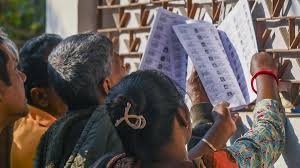
Albania appoints worldΓÇÖs first AI minister: A revolutionary step against corruption!
Tirana, September 15, 2025: The small country of Southeastern Europe, Albania, has surprised the world with an unprecedented and historic decision. Albania has appointed the worldΓÇÖs first artificial intelligence (AI)-based minister, ΓÇÿDiellaΓÇÖ, who will be tasked with eradicating corruption and bringing transparency to government procurement processes. The appointment was announced by Albanian Prime Minister Edi Rama, who won a fourth consecutive term in elections in May.
DiellaΓÇÖs role: Using technology against corruption
Diella, which means ΓÇÿsunΓÇÖ in Albanian, is an AI-based virtual assistant that was previously introduced in January 2025 on AlbaniaΓÇÖs e-Albania portal to guide citizens in accessing government services and documents. She has now been promoted to ΓÇÿMinister of Public ProcurementΓÇÖ, where she will evaluate and allocate all government tenders. Prime Minister Rama said that every tender process under the supervision of the Della will be "100% corruption-free and completely transparent".
Albania's public tender process has been plagued by allegations of corruption for years. There have often been complaints of misuse of public funds and bias in tenders. The government's aim behind the appointment of the Della is to implement a data- and rules-based decision-making process, reducing opportunities for human intervention and corruption. So far, the Della has issued more than 36,600 digital documents and provided citizens with nearly 1,000 services, proving its effectiveness.
A major step towards EU membership
This revolutionary step by Albania is linked to its ambition to join the European Union (EU). Eradication of corruption is a key criterion for EU membership, and the appointment of the Della is a reinforcement of Albania's goal. Prime Minister Rama has claimed that through the Della, Albania will move towards joining the EU by 2027. Local media have welcomed the decision, calling it a "major revolution in the use of administrative power and the integration of technology."
Controversy and concerns: Is Diala's appointment constitutional?
While Diala's appointment has received global praise, it has also raised some controversy and concerns. According to Albania's constitution, government ministers must be over 18 years of age and mentally competent. Opposition leader Gazmend Bardhi has called Diala's appointment "unconstitutional" and Prime Minister Rama's decision a "farce." "This drama by the Prime Minister cannot be translated into legal actions in Albania," he wrote on Facebook.
Experts have expressed concern about the lack of human oversight of Diala's decision-making process. What if Diala is trained on flawed data or biased algorithms? Could cyberattacks affect her performance? Such questions have raised doubts among Albanian citizens. Some have made humorous comments on social media, such as, "Even the Déa will be corrupt in Albania!" while others have supported her transparency, as she cannot afford to be bribed in any way.
Déa's future and global impact
Déa's appointment is not limited to Albania; she could become a model for technology-based governance globally. If Déa succeeds in reducing corruption and increasing transparency, a similar model could be adopted in other corruption-ridden countries in Eastern Europe, Latin America and Africa. Albanian officials told Euronews in an interview that Déa's decisions will be publicly available, which will increase citizens' trust.
However, transparency advocates have called for Déa's code to be open-sourced, to avoid the risk of "black box" decision-making. In addition, Albania is working with EU experts to ensure compliance with EU data protection laws (GDPR). If successful, Diala could be expanded to other areas, such as budget planning and compliance monitoring.
AlbaniaΓÇÖs digital revolution
The deployment of Diala is part of AlbaniaΓÇÖs broader digital transformation. More than 95% of public services in the country are now available online, and Diala has already guided millions of applications through the e-Albania portal. Local and international media have called the initiative ΓÇ£an important step in making technology an active partner in governance.ΓÇ¥
AlbaniaΓÇÖs move opens a new chapter in the integration of technology and governance. DialaΓÇÖs success or failure could chart a new course for global governance in the coming years. For now, Diala is a symbol of AlbaniaΓÇÖs digital ambitions, and it is becoming an example of how technology can be used to fight corruption.
Tirana, September 15, 2025: The small country of Southeastern Europe, Albania, has surprised the world with an unprecedented and historic decision. Albania has appointed the worldΓÇÖs first artificial intelligence (AI)-based minister, ΓÇÿDiellaΓÇÖ, who will be tasked with eradicating corruption and bringing transparency to government procurement processes. The appointment was announced by Albanian Prime Minister Edi Rama, who won a fourth consecutive term in elections in May.
DiellaΓÇÖs role: Using technology against corruption
Diella, which means ΓÇÿsunΓÇÖ in Albanian, is an AI-based virtual assistant that was previously introduced in January 2025 on AlbaniaΓÇÖs e-Albania portal to guide citizens in accessing government services and documents. She has now been promoted to ΓÇÿMinister of Public ProcurementΓÇÖ, where she will evaluate and allocate all government tenders. Prime Minister Rama said that every tender process under the supervision of the Della will be "100% corruption-free and completely transparent".
Albania's public tender process has been plagued by allegations of corruption for years. There have often been complaints of misuse of public funds and bias in tenders. The government's aim behind the appointment of the Della is to implement a data- and rules-based decision-making process, reducing opportunities for human intervention and corruption. So far, the Della has issued more than 36,600 digital documents and provided citizens with nearly 1,000 services, proving its effectiveness.
A major step towards EU membership
This revolutionary step by Albania is linked to its ambition to join the European Union (EU). Eradication of corruption is a key criterion for EU membership, and the appointment of the Della is a reinforcement of Albania's goal. Prime Minister Rama has claimed that through the Della, Albania will move towards joining the EU by 2027. Local media have welcomed the decision, calling it a "major revolution in the use of administrative power and the integration of technology."
Controversy and concerns: Is Diala's appointment constitutional?
While Diala's appointment has received global praise, it has also raised some controversy and concerns. According to Albania's constitution, government ministers must be over 18 years of age and mentally competent. Opposition leader Gazmend Bardhi has called Diala's appointment "unconstitutional" and Prime Minister Rama's decision a "farce." "This drama by the Prime Minister cannot be translated into legal actions in Albania," he wrote on Facebook.
Experts have expressed concern about the lack of human oversight of Diala's decision-making process. What if Diala is trained on flawed data or biased algorithms? Could cyberattacks affect her performance? Such questions have raised doubts among Albanian citizens. Some have made humorous comments on social media, such as, "Even the Déa will be corrupt in Albania!" while others have supported her transparency, as she cannot afford to be bribed in any way.
Déa's future and global impact
Déa's appointment is not limited to Albania; she could become a model for technology-based governance globally. If Déa succeeds in reducing corruption and increasing transparency, a similar model could be adopted in other corruption-ridden countries in Eastern Europe, Latin America and Africa. Albanian officials told Euronews in an interview that Déa's decisions will be publicly available, which will increase citizens' trust.
However, transparency advocates have called for Déa's code to be open-sourced, to avoid the risk of "black box" decision-making. In addition, Albania is working with EU experts to ensure compliance with EU data protection laws (GDPR). If successful, Diala could be expanded to other areas, such as budget planning and compliance monitoring.
AlbaniaΓÇÖs digital revolution
The deployment of Diala is part of AlbaniaΓÇÖs broader digital transformation. More than 95% of public services in the country are now available online, and Diala has already guided millions of applications through the e-Albania portal. Local and international media have called the initiative ΓÇ£an important step in making technology an active partner in governance.ΓÇ¥
AlbaniaΓÇÖs move opens a new chapter in the integration of technology and governance. DialaΓÇÖs success or failure could chart a new course for global governance in the coming years. For now, Diala is a symbol of AlbaniaΓÇÖs digital ambitions, and it is becoming an example of how technology can be used to fight corruption.
DiellaΓÇÖs role: Using technology against corruption
Diella, which means ΓÇÿsunΓÇÖ in Albanian, is an AI-based virtual assistant that was previously introduced in January 2025 on AlbaniaΓÇÖs e-Albania portal to guide citizens in accessing government services and documents. She has now been promoted to ΓÇÿMinister of Public ProcurementΓÇÖ, where she will evaluate and allocate all government tenders. Prime Minister Rama said that every tender process under the supervision of the Della will be "100% corruption-free and completely transparent".
Albania's public tender process has been plagued by allegations of corruption for years. There have often been complaints of misuse of public funds and bias in tenders. The government's aim behind the appointment of the Della is to implement a data- and rules-based decision-making process, reducing opportunities for human intervention and corruption. So far, the Della has issued more than 36,600 digital documents and provided citizens with nearly 1,000 services, proving its effectiveness.
A major step towards EU membership
This revolutionary step by Albania is linked to its ambition to join the European Union (EU). Eradication of corruption is a key criterion for EU membership, and the appointment of the Della is a reinforcement of Albania's goal. Prime Minister Rama has claimed that through the Della, Albania will move towards joining the EU by 2027. Local media have welcomed the decision, calling it a "major revolution in the use of administrative power and the integration of technology."
Controversy and concerns: Is Diala's appointment constitutional?
While Diala's appointment has received global praise, it has also raised some controversy and concerns. According to Albania's constitution, government ministers must be over 18 years of age and mentally competent. Opposition leader Gazmend Bardhi has called Diala's appointment "unconstitutional" and Prime Minister Rama's decision a "farce." "This drama by the Prime Minister cannot be translated into legal actions in Albania," he wrote on Facebook.
Experts have expressed concern about the lack of human oversight of Diala's decision-making process. What if Diala is trained on flawed data or biased algorithms? Could cyberattacks affect her performance? Such questions have raised doubts among Albanian citizens. Some have made humorous comments on social media, such as, "Even the Déa will be corrupt in Albania!" while others have supported her transparency, as she cannot afford to be bribed in any way.
Déa's future and global impact
Déa's appointment is not limited to Albania; she could become a model for technology-based governance globally. If Déa succeeds in reducing corruption and increasing transparency, a similar model could be adopted in other corruption-ridden countries in Eastern Europe, Latin America and Africa. Albanian officials told Euronews in an interview that Déa's decisions will be publicly available, which will increase citizens' trust.
However, transparency advocates have called for Déa's code to be open-sourced, to avoid the risk of "black box" decision-making. In addition, Albania is working with EU experts to ensure compliance with EU data protection laws (GDPR). If successful, Diala could be expanded to other areas, such as budget planning and compliance monitoring.
AlbaniaΓÇÖs digital revolution
The deployment of Diala is part of AlbaniaΓÇÖs broader digital transformation. More than 95% of public services in the country are now available online, and Diala has already guided millions of applications through the e-Albania portal. Local and international media have called the initiative ΓÇ£an important step in making technology an active partner in governance.ΓÇ¥
AlbaniaΓÇÖs move opens a new chapter in the integration of technology and governance. DialaΓÇÖs success or failure could chart a new course for global governance in the coming years. For now, Diala is a symbol of AlbaniaΓÇÖs digital ambitions, and it is becoming an example of how technology can be used to fight corruption.

.jpg)
















